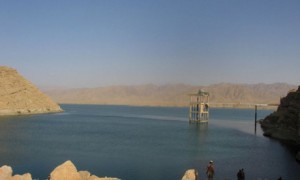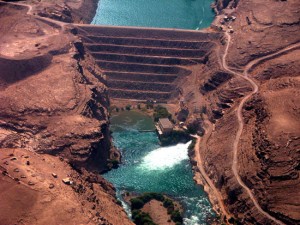Thousands of British Troops Too Fat to Deploy?
BY Herschel SmithA disturbing report from the Daily Mail.
Thousands of British troops cannot be sent to Afghanistan because they are too fat to fight, a leaked army memo revealed.
The war effort is being hampered by the number of front-line troops who are either obese or too unfit to be deployed to Helmand in the south of the country.
The news comes at a time when commanders are desperately fighting for more troops to be sent to the province to replace those who have been injured or killed.
According to the emergency memo, a ‘worrying trend of obesity’ is preventing soldiers from being deployed to the province.
It raises concerns that soldiers are failing to carry out the basic minimum of two hours physical exercise a week.
The document, obtained by the Observer, also warns that Britain’s ‘operational effectiveness’ is being undermined by low levels of fitness and raises concerns that lives could be lost because some soldiers are not fit enough to cope with the challenging conditions in Afghanistan.
‘The numbers of personnel unable to deploy and concerns about obesity throughout the army are clearly linked to current attitudes towards physical training,’ the memo from Major Brian Dupree of the army physical training corps in Wiltshire states.
He called for the army to ‘reinvigorate a warrior ethos and a culture of being fit’, concluding that it had ‘not consistently maintained our standards of physical fitness’.
To tackle the problem, the army is introducing a ‘body composition measurement’ in October to target overweight soldiers. It will also enforce a minimum of three physical training sessions a week.
The news comes as military commanders are demanding more British troops be sent to Afghanistan to protect ground recently gained from the Taliban in Operation Panther’s Claw.
An extra 125 troops have already been sent to replace those injured or killed in the offensive which has seen the highest number of British casualties since the conflict began.
There are currently 3,860 army personnel classified as PUD – personnel unable to deploy – with a further 8,190 classified as ‘of limited deployability’ for medical reasons.
The MoD said it could not provide a breakdown of these figures.
The current army fitness policy states that to be fit to fight requires a minimum of two to three hours of physical activity per week.
In the memo, which is dated July 10, Major Dupree said: ‘It is clear that even this most basic policy is not being implemented.
‘To cope with the demands of hybrid operations in Afghanistan and future conflicts the army needs personnel with that battle-winning edge that sustains them through adversity. It is clear this message has been diluted recently and this attitude must change.
‘The increasing PUD list and concerns over obesity in the services are clearly linked to this indifferent attitude.’
Patrick Mercer, head of strategy at the Army Training & Recruiting Agency, said: ‘This lack of personal fitness is a disgraceful state of affairs. The army is desperately undermanned anyway and for obesity to be a problem is extraordinary.’
The memo comes three years after the army relaxed its rules to allow recruits with a higher body mass index (BMI) to join after research found that two thirds of British teenagers were too fat to meet fitness requirements.
Applicants with a BMI of 32 – two points above the World Health Organisation’s definition of obesity – can now enlist.
Is this a joke? I hesitate even to link and comment on this article because I wonder if it’s going to be proven a hoax. Perhaps some British reader can weigh in and tell us if this report is legitimate.
Even if the condition is ameliorated, two hours of physical training per week is a preposterous level of training for Solders. By the end of the day today, between weight training (today was bench press, inclined bench press, and curls, Tuesday it’s legs, Wednesday it’s back and posterior deltoids, etc.) and my aerobic activity, I will have put in more than two hours of physical training, and I am 50 years old. Again, I put in more than two hours per day, not per week. Surely this report is in error. Surely. Can one of our loyal British readers confirm or deny this report, or at least place this in context for us?
viagra how it works Which Is Better Lavitra Or Viagra herbal viagra forums
snorting viagra health Apcalis Levitra Viagra viagra patent levitra
viagra anxiety Viagra Uk taking viagra woman
cheap gerneric viagra, How To Get Viagra Prescription generic viagra levitra and cialis pills
can i take viagra Viagra Pics viagra how it works
herbal viagra forums Cialis Or Viagra snorting viagra health
viagra patent levitra Viagra Online No Rx viagra anxiety
taking viagra woman Recreational Use Of Viagra cheap gerneric viagra,
generic viagra levitra and cialis pills Viagra Bon Marche can i take viagra
viagra how it works Viagra Liver Damage herbal viagra forums
snorting viagra health Viagra Store In Canada viagra patent levitra
viagra anxiety Purchase Viagra taking viagra woman
cheap gerneric viagra, Viagra Oral Jelly generic viagra levitra and cialis pills
can i take viagra Buy Cheap Viagra Online Uk viagra how it works
herbal viagra forums Viagra Order Cheap Iframe snorting viagra health
viagra patent levitra Viagra Suppliers In The Uk viagra anxiety
taking viagra woman Cheapest Viagra Prices cheap gerneric viagra,
generic viagra levitra and cialis pills U 2732 Viagra can i take viagra
viagra how it works Viagra And Sperm Count herbal viagra forums
snorting viagra health Viagra Compounds viagra patent levitra
viagra anxiety Buy Viagra Online In Uk taking viagra woman
cheap gerneric viagra, Canada Viagra generic viagra levitra and cialis pills
can i take viagra Viagra In Britain viagra how it works
herbal viagra forums Alternative To Viagra snorting viagra health
viagra patent levitra Buy Viagra Online viagra anxiety
taking viagra woman Side Effects Of Viagra cheap gerneric viagra,
generic viagra levitra and cialis pills Buy Viagra On Line can i take viagra
viagra how it works Viagra Fedex herbal viagra forums
snorting viagra health Natural Herbal Alternatives To Viagra viagra patent levitra
viagra anxiety Female Use Of Viagra taking viagra woman
cheap gerneric viagra, Took 100mg Viagra generic viagra levitra and cialis pills
can i take viagra Viagra Without Prescription viagra how it works
herbal viagra forums Discount Viagra Online snorting viagra health
viagra patent levitra Suppliers Of Viagra In Uk viagra anxiety
taking viagra woman Discount Viagra Pills cheap gerneric viagra,
generic viagra levitra and cialis pills Buy Viagra Without Prescription can i take viagra
viagra how it works Drinking And Viagra herbal viagra forums
snorting viagra health Viagra Pharmacy viagra patent levitra
viagra anxiety Mail Order Viagra In Uk taking viagra woman
cheap gerneric viagra, Non Prescription Viagra generic viagra levitra and cialis pills
can i take viagra Viagra Canada viagra how it works
herbal viagra forums How T Get Viagra snorting viagra health
viagra patent levitra Viagra Next Day Delivery viagra anxiety
taking viagra woman Indian Viagra cheap gerneric viagra,
generic viagra levitra and cialis pills Buy Viagra Online 35008 can i take viagra
viagra how it works Viagra Buy Online herbal viagra forums
snorting viagra health Viagra Size viagra patent levitra
viagra anxiety Vicodin Viagra taking viagra woman
cheap gerneric viagra, Generic Viagra Pill generic viagra levitra and cialis pills





